Taking things one idea at a time
Charting a career and winning awards with Erin Flanagan
In April of 2022, I met Erin Flanagan in person at the Mystery Writers of America’s pre-ceremony reception for the Edgar Awards. We’d both been nominated for Best First Novel by an American Author, and we’d both drifted to the side of the room, ovewhelmed by the magnitude of the crowd. We’d met virtually a couple weeks prior in a Zoom panel, during which I learned she’d read all the other finalists’ books. She was so freaking nice and supportive and funny, so it was easy to clap hard for her when she won the award. She preceded her winning debut novel, DEER SEASON, with two story collections, and she’s gone on to publish two more novels. Well, one is a whisper away from publication: COME WITH ME is out on August 22. Ever since we shut down the bar after the ceremony, we’ve been Writer Friends, as they say in the business. (Which meant she had to say “yes” when I asked if I could interview her for the Substack. It’s in the fine print of the Writer Friends Contract.)
Caitlin: What did it feel like to beat me for the Edgar? (I made myself squeal laughing when I thought of this question. SHOULD I KEEP IT IN THE INTERVIEW?!)
Erin: lololol of course you’d phrase it that way! Honestly, I felt nothing as much as shock. I had to turn to my husband and be like, did they really call my name? I had read all the books in the category and thought they were so wonderful, but yours in particular—The Damage—blew me away. When we met earlier in the evening I thought, thank goodness this award will go to someone so lovely and charming and funny. And now here’s where you say it did, but really, it was just such a surprise and such an honor.
Caitlin: Well now I regret the joke because you were way too complimentary. But seriously, did you know what a big deal the Edgar Award is before you were nominated?
Erin: I thought I did, but then immediately was like, maybe it’s not if I got nominated? The first person I called was my husband and he was like, “holy shit! I’ve known about the Edgars since I was thirteen and got super into Raymond Chandler.” And then I looked up the people who had won the award and about fell over.
Caitlin: Tana French won that award.
Erin: I know! And sometimes I think, I bet she still looks it up to see who was nominated every year, which means she’s read our names. Think of that! Tana French has read OUR NAMES!
So yeah, I knew it was a big deal, but what I didn’t know was that I’d written a mystery. I had been too—insecure I guess is the word?—to say I’d written in that genre. I thought I didn’t deserve to call myself a mystery writer. Like, readers would pick up the book and be like, halfway through and we still don’t have a dead body? I didn’t understand at that point how all-encompassing the genre can be. It was really gratifying to be welcomed so openly by the mystery-writing community.
Caitlin: Your third novel is coming out later this month. Huzzah! I’ll summarize it so you don’t have to, because everyone hates doing that.
Erin: I always think of that Chris Farley sketch from SNL where he’s interviewing a famous movie star and is all, “Do you remember that scene? Where you beat that guy up? That was awesome.” That’s me trying to describe my book: “It’s about this lady? And she meets this other lady? And bad stuff happens? It’s awesome.”
Caitlin: Here’s the set up: Gwen hasn’t worked since she was a summer intern; unlike her fellow interns, she was on the “get married, have kids, stay at home” track, and she knew it. Then, her tech startup husband dies, leaving her with a daughter and a world of financial grief. She reaches out to the one place she worked and one of her fellow interns, Nicola, is still there, now high on the food chain. Gwen calls her and they immediately connect, almost like they’d actually been friends that summer. Nicola gets her a job at the company, finds her housing, and offers her the lifeline of female friendship. They basically become best friends overnight. But Nicola is bothered by Gwen’s competing interests, namely, her daughter. And what ever happened to the other intern that summer, the one Nicola was so close with? And how do you extract yourself from someone you built your whole new life around?
How’s THAT for flap copy!
Erin: That’s perfect! Thank you. I think from now on we should just agree to write each other’s copy since it’s so hard to do it for your own work. And I’m going to start telling everyone, “Do you remember that time Caitlin described by book? And she said all the right beats? That was awesome.”
Caitlin: You know I loved this story. I called it a “too close, too fast” friendship. As someone who has had these (though never to such exciting ends as this one), you captured the phenomenon so well. How did you do that?
Erin: I am so into this setup, too! I didn’t marry until my mid-thirties, and for the first three decades, female friendships were much more at the center of my life than romantic relationships. Friends were the ones I called in the middle of the night, and went on trip with, and felt closest to, yet so often we only think of romantic relationships as defining us or mattering. But these kinds of friendships can end up having that same intensity only without the sex—that giddy rush of a new bestie. I too have had my fair share of friendships like this, but yeah, not to the extent in the book, although the feeling might have been just as deep. I remember breaking up with one woman—we were both crying in her car in front of our work—and thinking, is this weird? It seems weird. But I don’t actually think it is.
And to be fair, I’m sure in some of these relationships I’ve been the Nicola and in some I’ve been the Gwen.
Caitlin: Another thing I loved about the book was how Nicola was obsessed with life rules, and how you used her rules as mile markers in the story. Rule #1: Don’t Let Anyone Make You Feel Small. There was something about it that immediately evoked dread. I could see the dark side of the rule when I read it. You played really well with this the whole book: good intentions with bad results. Actions that seem defensible. Threats that are hard to name. Do you prefer reading this kind of suspense, as opposed to something more in-your-face, i.e., the plane has just been hijacked; the woman wakes up kidnapped; etc.?
Erin: I am much more about the psychological threat—that feeling of dread, rather than the physical danger. And what you say—good intentions with bad results—is just so much more interesting to me than bad people doing bad things. My husband often says, “No one wakes up and thinks, I’m going to be an asshole today.” (He usually follows this up by saying, “But boy did they succeed.”) It’s the whole, we’re all heroes in our own stories. It was one of the things that really drew me to Nicola’s voice in the book. I wanted to see how she got where she is, and why she wanted to hold onto Gwen so badly. It took me three tries writing beginning to end to crack her motivations, but once I did, I felt the story really made sense.
Caitlin: We had a video call recently to catch up, and we talked about something interesting. (Just the one thing.) Another Substack I read just posted a piece about it: it’s this issue of whether and how to plan what kinds of books you get to write. (As Kate McKean put it: “But will you get pigeonholed?”) In our call, you were asking yourself if you needed to pick a lane. At least you ain’t pigeonholed! (Please read that in a midwestern accent.)
Erin, interrupting: Always and forever.
Caitlin, soldiering on: Your first books were short story collections: THE USUAL MISTAKES and IT’S NOT GOING TO KILL YOU, AND OTHER STORIES. Your Edgar-winning first novel, DEER SEASON, is an excellent but slower-moving suspense story than your upcoming, and I’d say it has more mystery elements, too. And your second novel has a light sci-fi slant! As an outsider looking in, you look like you’re writing the stories that interest you, with a common thread of good character, real-world people, and the effects of crime and bad decisions. And yet I totally get the insecurity that maybe you’re “supposed to be” doing something different from whatever it is you’ve done. In your case, maybe you’re supposed to be branding yourself as always writing a certain kind of story. Can you try to explain the contradictory thoughts pinging around in writers’ brains?
Erin: Oh, lady. This is something I worry about constantly, and I’m 98% sure that worrying is doing no good, but I better not give it up because of that 2% chance. I read that article by Kate McKean and nodded and sobbed my little head off. I do always worry I’m doing the wrong thing, and I think you just have to navigate it idea by idea, balancing what you want to write with what other people want to publish.
After BLACKOUT sold—my first agented novel—I just assumed I would keep writing what I wanted to write like I always had, so I spent six months or so writing a draft of another thriller. I told my agent about it and she had me write up the synopsis, and very quickly it became clear that it wasn’t something the publisher was interested in. So I tried to come up with another idea that had wider appeal, and I landed on something I really loved and kind of constructed a synopsis from the ground up without writing the book first, which was bananas to me because I’d always been a pantser. But anyway, I did it, and the hard thing is, I really had to convince myself this could be a book and maybe was a book I just hadn’t written yet. I basically had to fall in love all over again, but then that idea was rejected. So then I had to do it again, and that’s the book that became COME WITH ME.
Right now I’m in the process of doing this for the next book, and so far I’m on the fourth go. Building it out of nothing, beginning to believe in it and really love it, and then having to knock that sand castle down and start again. It’s kind of devastating in the moment, but in this weird way, it’s something I’m also really proud of. I’ve always been a one-idea-at-a-time kind of girl, and to have to do this, scrap it, and come up with another idea and really love it has been oddly exhilarating. I feel like I’m reaching new levels of creativity through these exercises.
That said, what I would really love is a guarantee at the end. I want someone to say, “you write six synopses and we’ll give a book deal, no questions asked.” Or like, a contract in perpetuity that says “we’ll hang on until we find the right idea, promise.” What’s so painful for me is the not knowing, and the fear that each book could be the last. It’s like how in a marriage you can know no matter how many fights or issues you have, there’s love at the core and you’re both willing to stick it out until the next good patch. It’s like that only they have a ripcord and a million mistress/debuts waiting in the wings, and you’ve been told you’ll never love again.
Wow, have I gotten off track. I’m blaming that Kate McKean piece.
Back to what you were asking about what maybe ties my books together: I think at the core they’re about characters I really empathize with, and women and the balances of power. That’s broad enough I can hit the mark lol. But I also think it’s true. It’s like my philosophy on life: I think people are basically good, but they sometimes do shitty things. I mean, who could disagree? I am fairly sure I’ll stay in the mystery genre because it’s what I love, both as a writer and a reader, but again, it’s as broad as saying I write about women’s concerns. Really, half of humanity? That’s how you’re narrowing it down?
Caitlin: You keep busy; in addition to writing novels, you’ve got a daughter, a pretty cool husband,1 and you’re a professor. But you also review books! How often do you write reviews these days? And can you talk a bit about how you got into it in the first place, because I remember it’s been a really great experience for you.
Erin: I originally started writing book reviews because I was so sick of trying to be a writer that I wanted to go back to what I originally loved: being a reader. The ironic part was that it made me fall in love with story and language all over again and ultimately got me back to writing.
Nowadays most of my reviews are written anonymously for Publishers Weekly—a gig I heard about on Twitter, of all places—and I try to do 2 a month. The anonymity makes sense because sometimes a book doesn’t do what it seems to set out to do for this or that reason, and because these are trade reviews, you have to be upfront about that, and I don’t want other authors mad at me. When I was writing reviews for a byline, my rule was to only review books I could review positively. I wanted to write reviews that celebrated books, not tore them down.
The purpose of a trade review is different, but I never forget there’s a writer on the other side waiting for that review, and I know how nerve-wracking that can be. I treat each book with respect. I always try to keep in mind what the author seems to have set out to accomplish for the book, who the audience is, and whether I think the author has succeeded and the reader will be satisfied. It feels like an important job, and isn’t one I take lightly.
On Goodreads, it’s a whole ’nother ballgame. I give every book five stars. I think to myself, it’s hard to write a book! Five stars for you!
Caitlin: Same exact Goodreads philosophy. And on that note, a last question: read anything good lately??
Erin: I have read so many freaking good books recently, just banger after banger. I’ve read Alex Marwood’s The Island of Lost Girls, R.F. Kuang’s Yellowface, Notes on an Execution by Danya Kukafka, Romantic Comedy by Curtis Sittenfeld, Megan Abbott’s Beware the Woman, Rebecca Makkai’s I Have Some Questions for You, The Quiet Tenant by Clémence Michallon, and Prom Mom by Laura Lippman, all within the last few months. Honestly, it’s been the streak of a lifetime. I feel like I should stop washing my socks or never wear shower shoes, or whatever magical thinking sports-types talked about in Bull Durham.
And by the way, Caitlin, that’s a little gift to you: the chance to find the perfect Bull Durham meme.
If you enjoyed this interview, consider preordering Erin’s book!


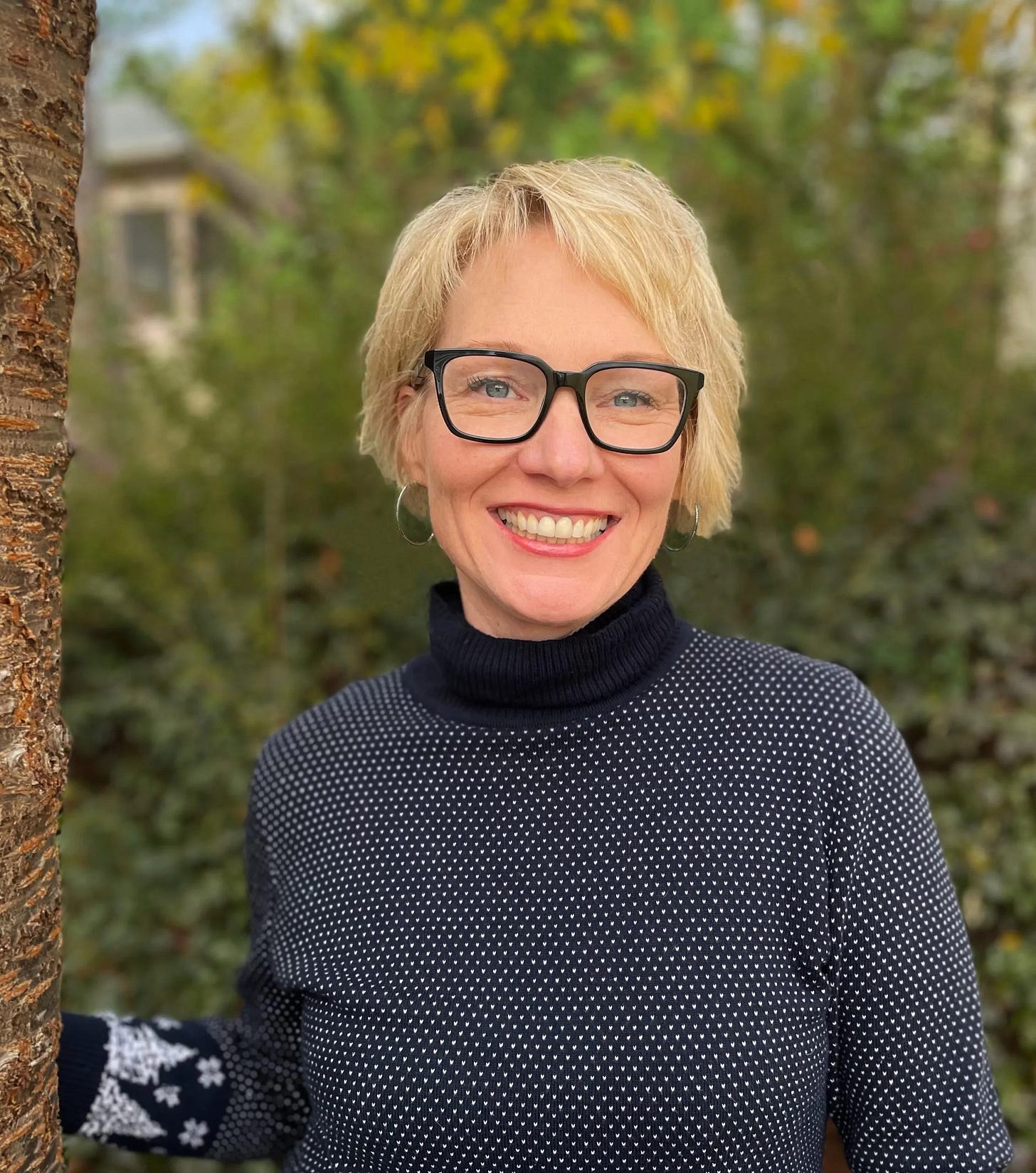
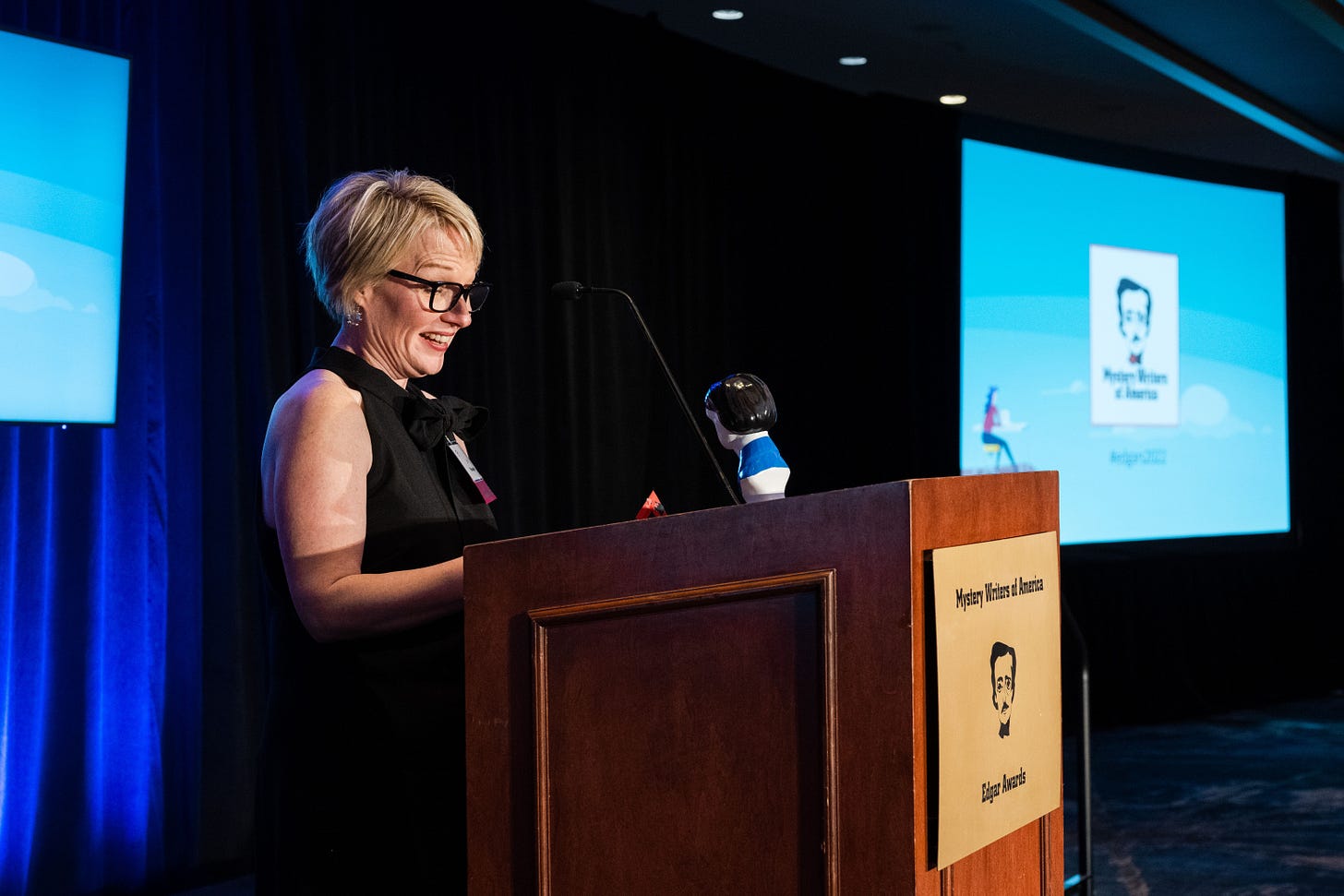
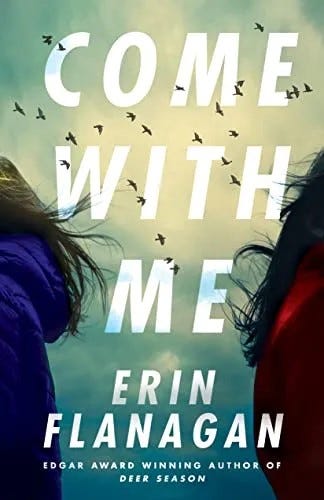
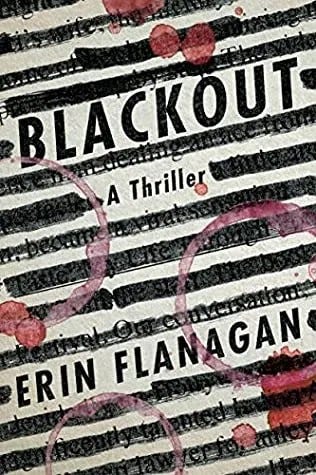
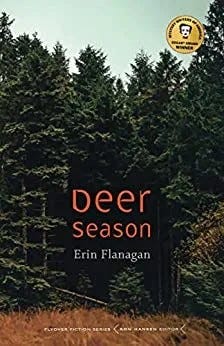
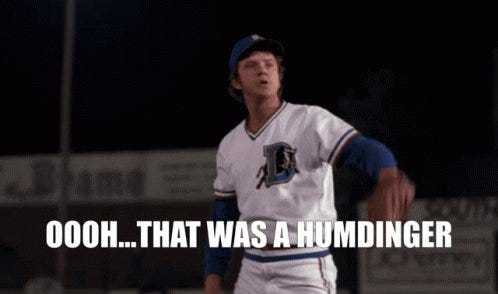

Great interview with thoughts about the proposal process (pros and cons), writing anxieties, career arc, and "too fast, too soon" friendships. I've already pre-ordered Erin's book and I can't wait to read it!